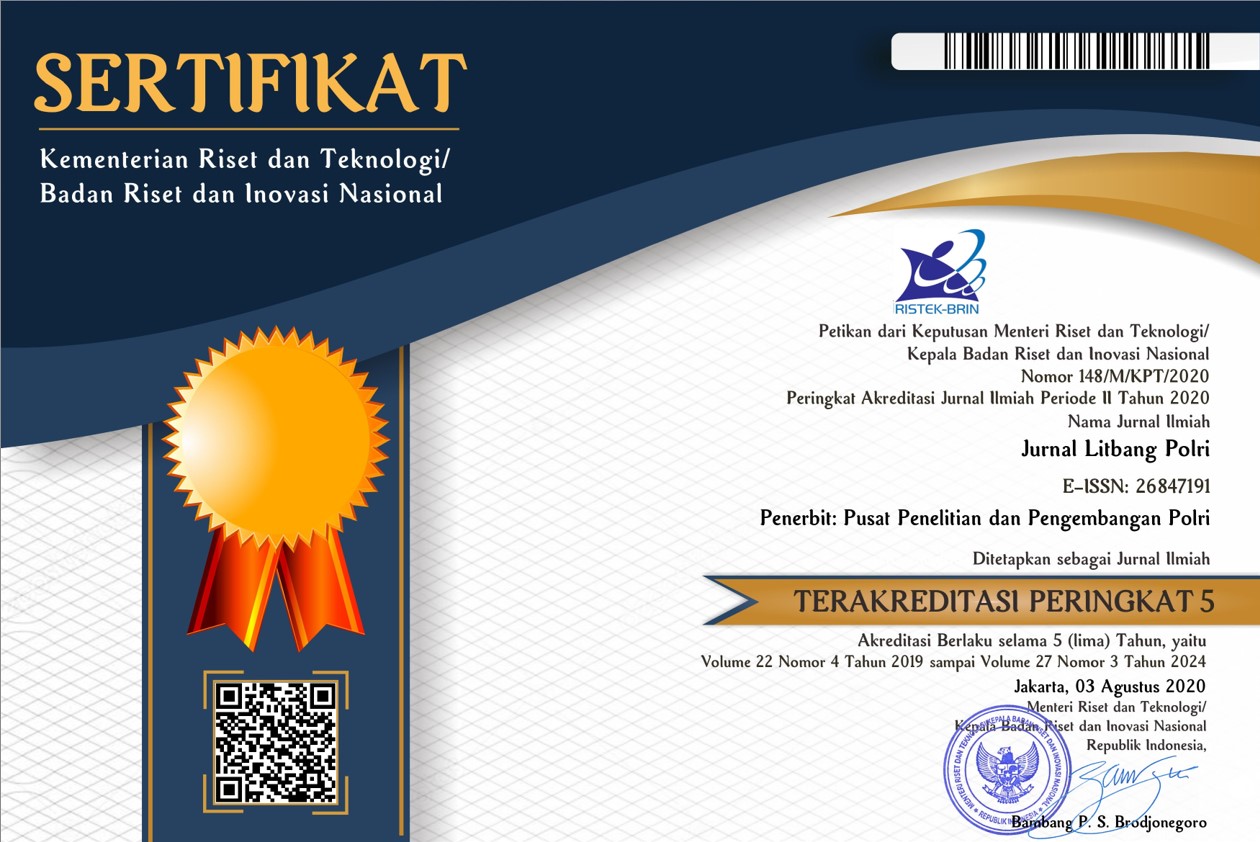Emulating Police Interaction Ritual in Cyberspace: Apparent Challenge in Policing the Internet
Abstract
As internet usage becomes increasingly relevant in daily life, the police has an obligation to have a presence, protect, and uphold the law in the digital world. However, this digital realm comprises new 'spaces' that contest traditional conceptions of physical space, wherein law enforcement has been deterring and combating crime through micro-level, direct contacts between police and the public. This paper seeks to understand the challenges encountered by police in establishing a presence in the intangible cyberspace. This study does a comprehensive literature analysis to examine the adaptation of policing methods, including interaction with the community, patrols, surveillance, and community policing, as they pertain to the cyber realm. We examine the use of established crime prevention theories, such as Routine Activity Theory, in the context of designing approaches to prevent cybercrime. The primary challenges encountered encompass the necessity of upholding legitimacy, traversing jurisdictional boundaries, and the ethical implications of employing cyber-policing. Ultimately, when faced with the challenges of existing in an abstract realm, law enforcement must continually adjust to the evolving environment while upholding the ideals that characterize policing as actions that reinforce social order.
The copyright of articles published in Jurnal Litbang Polri remains with the author. However, by submitting the manuscript and agreeing to its publication, the author grants Jurnal Litbang Polri the first publication right to:
-
Publish the article openly (open access)
-
Distribute, store, and reproduce the article in both print and electronic formats
-
Archive the article in institutional digital repositories, scientific indexing services, and publication databases
Authors retain the right to use their article for personal, academic, or institutional purposes, provided that the original source of publication in Jurnal Litbang Polri is properly cited.


 Jalan Raya Tonjong, Desa Cimanggis, Bojonggede, Kabupaten Bogor.
Jalan Raya Tonjong, Desa Cimanggis, Bojonggede, Kabupaten Bogor. 










